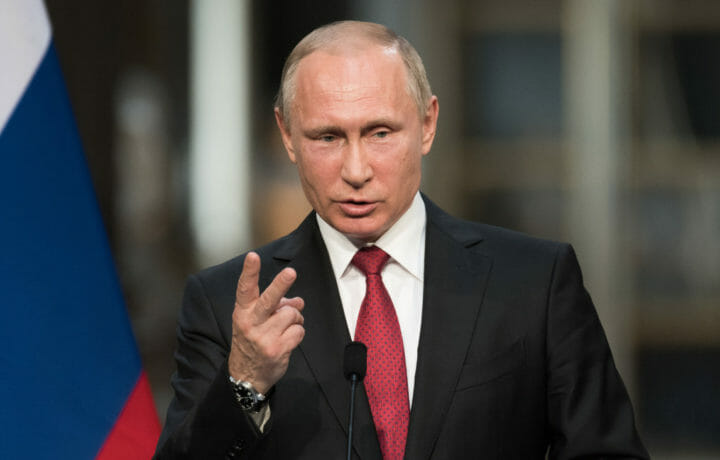The war in Ukraine is fought on many fronts, including the world of espionage and extremist violence. Increasingly, this shadow conflict involves a disturbing element: U.S. citizens who are both overtly and covertly aiding Russia’s unwarranted war against Ukraine and the West in general. The cases of Daniel Martindale, recently granted Russian citizenship, and “The Base,” a white supremacist group claiming an assassination of an SBU officer in Ukraine, highlight a troubling pattern of Americans contributing, directly or indirectly, to Moscow’s war efforts.
Daniel Martindale – New Russian Citizen
Daniel Martindale’s story stands out as a stark example. President Putin personally granted U.S. citizen Daniel Martindale Russian citizenship recently. This significant act wasn’t a humanitarian gesture; it was a reward for Martindale’s espionage. Reports tell us he provided critical intelligence to Russian forces from inside Ukraine, including information on Ukrainian troop movements. Putin’s public acknowledgement of Martindale’s service effectively legitimizes this U.S. citizen’s direct support for Russia’s war. This case clearly demonstrates how an American has crossed a boundary and become a tangible asset in the Kremlin’s efforts to destroy a sovereign nation. Snowden now has company, Martindale.
The Base
Meanwhile, the extremist group “The Base” is playing a different, yet equally alarming, role. Following the recent assassination of SBU Colonel Ivan Voronych in Kyiv, The Base’s Ukrainian cell, known as “White Phoenix,” quickly claimed responsibility. This assassination, whether directly ordered by Russian intelligence or an opportunistic move by an ideologically aligned group, certainly serves Moscow’s goals of sowing chaos and undermining stability. Crucially, counterterrorism analysts, including those from the Institute for Strategic Dialogue, who closely monitor The Base’s online activities, have assessed these claims as credible, signaling a significant escalation in the group’s reported violence. The Base’s founder, Rinaldo Nazzaro, himself a U.S. citizen, operates from Russia and faces long-standing suspicions of ties to Kremlin intelligence. Russia is leveraging and empowering proxy actors, including violent extremists, to achieve its objectives through covert action, giving the Kremlin a fig leaf of plausible deniability.
Russia’s Hybrid War
These two distinct scenarios, espionage and extremist violence, both feed into Russia’s broader hybrid warfare strategy. Martindale’s alleged actions directly bolster Russian military intelligence. The Base’s reported assassination works to weaken Ukrainian society. This multi-layered approach allows Russia to exert influence and achieve strategic aims through non-state actors and clandestine operations, making the conflict even more complex and difficult to counter. Adding to this complex picture is the role of information warfare, exemplified by figures like John Dougan. John Dougan, a former U.S. Marine, has actively participated in Russia’s disinformation campaigns from Moscow, employing artificial intelligence (AI) and fake news sites to disseminate propaganda and distort narratives, thereby further blurring the boundaries of this shadow conflict.
Hybrid war with the west
Beyond these individual cases, there’s a wider pattern of Russian aggression through an escalating campaign of sabotage and subversion targeting critical infrastructure and military assets across Europe. This includes incidents in the Baltic Sea, where a “shadow fleet” of older, unregulated vessels, linked to Russian interests are destroying undersea infrastructure like pipelines and communication cables. These acts, often attributed to Russian military intelligence (GRU), aim to disrupt logistics, sow fear, and undermine support for Ukraine. While not directly involving U.S. citizens operating on U.S. soil, this pattern underscores the aggressive and diverse nature of Russia’s covert activities, posing a significant threat to NATO allies and broader Western security, and often complementing the more localized efforts seen with individuals like Martindale or groups like The Base.
The national security challenge
For Western national security, these cases present an evolving challenge. They underscore the varied ways individuals can become tools for foreign adversaries, whether through direct recruitment or ideological alignment. Russia has the capability to exercise this power through social networks and other online platforms, allowing it to spot, assess, and recruit individuals of interest for its machinations. Earlier this month we saw the guilty plea of a former U.S. Army lieutenant colonel who had been duped into providing classified information to his unidentified online paramour, who he thought was a Ukrainian woman.



